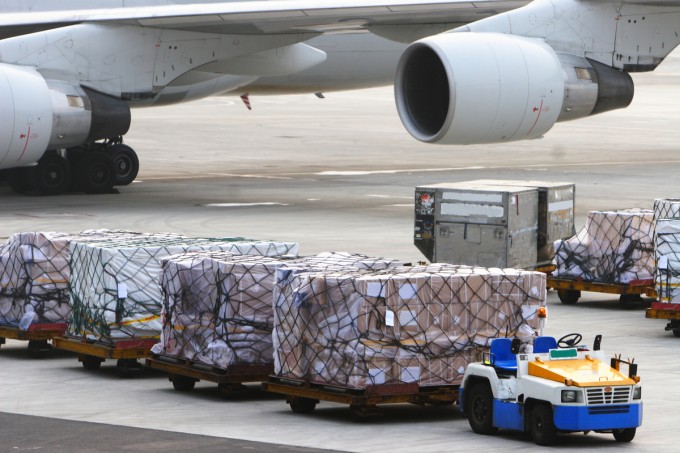News
While land and ship cargo transportation remain as favorable options, goods transport by air is considered as the quickest and the unhindered mode of transportation. According to the airline association, IATA, cargo volumes grew by 4.1% to 63.7 million metric ton, in 2018. However, the industry forecast suggests that the number may decrease by 3.7%, to 65.9 million metric ton, in 2019.
In terms of freight-ton-kilometer (FTK), air freight recorded growth in March 2019 after three months of year-on-year declines. However, the cargo sector is expected to benefit from lower costs, in 2019. The overall cargo revenues are expected to reach USD 116.1 billion in 2019, up from USD 109.8 billion in 2018.
Furthermore, cargo airlines plan to tie up with logistics service providers to create an efficient supply chain regarding freight forwarding, storage capability, and customs clearances. Air cargo continues to face significant challenges, such as fallen global trade volumes, global economic activity, and weakening consumer confidence, indicating further declines. However, the market is expected to grow due to factors, such as a strong demand for manufacturing exports and increased penetration of advanced technologies in the value chain. In addition, the overall growth rate in the e-commerce sector is expected to reinforce the growth prospects of the market studied, over the forecast period.
Emergence of E-commerce Propels Demand for Air Freight Services
Despite being a costlier mode of transportation, the increasing demand for perishables, chemicals, and valuables, as well as the rising demand for just-in-time production of goods, has created a massive demand for air freight services. Presently, air freight is being impacted by the rise of e-commerce from both B2B and B2C perspectives. The evolving e-commerce has put pressure on sales channels for faster delivery and an optimum supply chain. This scenario brings opportunities for the third-party logistics and warehousing services to integrate with the air e-commerce channel. Owing to the continued growth in online shopping, many third-party logistics (3PLs) are offering more multi-modal services, which include air cargo service as a critical mode of transportation. Furthermore, the growth in the overall cross-border e-commerce is anticipated to boost the demand for the air cargo industry.
The major e-commerce players in the industry are disrupting the traditional logistics supply chain with some innovative measures, in order to become independent. Amazon seems to be leading this race by following a different strategy. With Amazon Flex, Seller Flex, or the Amazon Prime Air program, the retail giant is trying to dominate the supply chain for its own services. As a result, it can reduce costs and become independent of its current logistics service providers. As per the technical sources, the company is also offering shipping services to third parties that are not represented on its website.

Image: Transportation of cargo by air. Source: https://theloadstar.com/
North America is the Fastest-growing Air Cargo Market and Asia-Pacific Accounted for the Largest Share
As per the current statistical sources, North America registered significant growth rates in 2018. In terms of freight-ton-kilometer (FTK), North America grew by 6.4% in 2018, when compared to 2017, followed by Latin America (5.9%), which is significantly higher than the global average (3.5%). Airlines based in North America were the strongest performers in January 2019. A robust performance from the US economy, which supported job growth and consumer spending, has been an important contributor to the recent cargo market outcomes for carriers in this region.
The air freight industry is a key part of the transportation and logistics industry. With the growing e-commerce trends, the demand for air cargo services is increasing significantly and more cargo is moving across the North American borders, as well as to the other regions. The recovering economies of the Latin American countries, like Brazil and Argentina, boost air cargo trade between the two regions.
Competitive Landscape
The air freight industry is moderately fragmented in nature. However, the industry is dominated by some of the major players operating in multiple regions across the world. Furthermore, one of the top air cargo carriers, FedEx Corporation, has a footprint and air cargo hubs in major gateways. Additionally, the company acquired regional express players to further increase its service range. On the other hand, the growing demand for air freight transportation services has opened new challenges for air cargo service providers.
Airlines need to focus on implementing fuel-efficient solutions and accommodate innovative technologies to provide cost-effective services. For the logistics players to succeed, the storage facilities need to be developed to assist the global increase in air cargo. Special economic zones (SEZ), free trade zones (FTZ), and the bonded warehouses are projected to cater to significant warehousing needs for the freight moving in and out of the airport shortly.
Related news
Tel: (+84) 251 3833 860 - Fax: (+84) 251 3833 396
Tax code: 3702098337
Bank account: 0481000750770 (Vietcombank)
Email: info@southmekong.vn - sales@southmekong.vn
Website: www.southmekong.vn
Warning: mysql_num_rows() expects parameter 1 to be resource, boolean given in /home/webngoainuoc/public_html/015.southmekong.vn/z_includes/online.php on line 3
Online: - Hints: 0574488 | Designed by Go On Group




